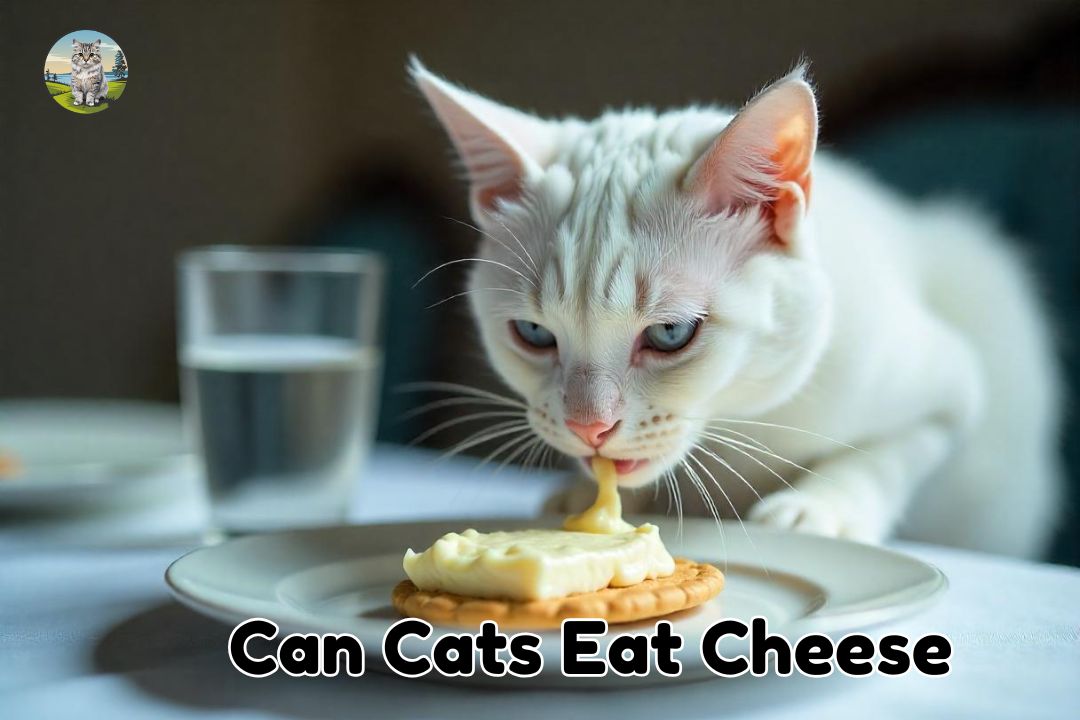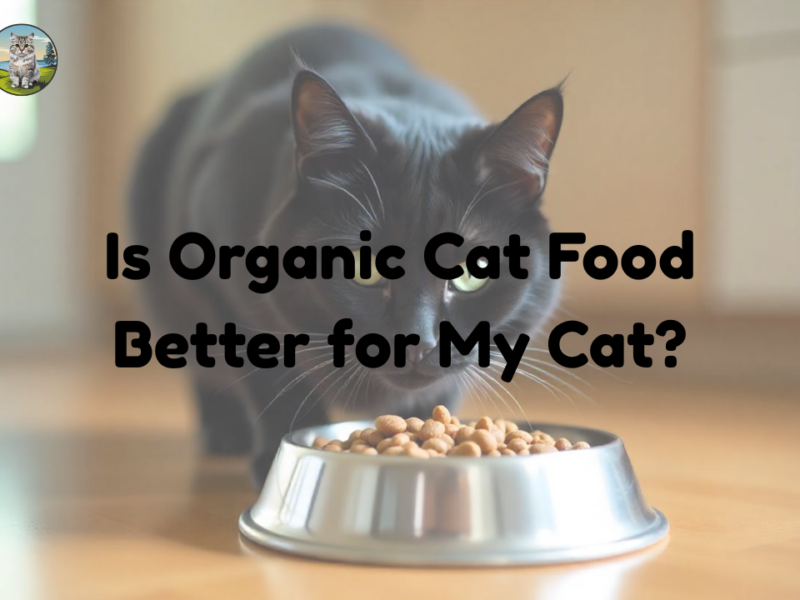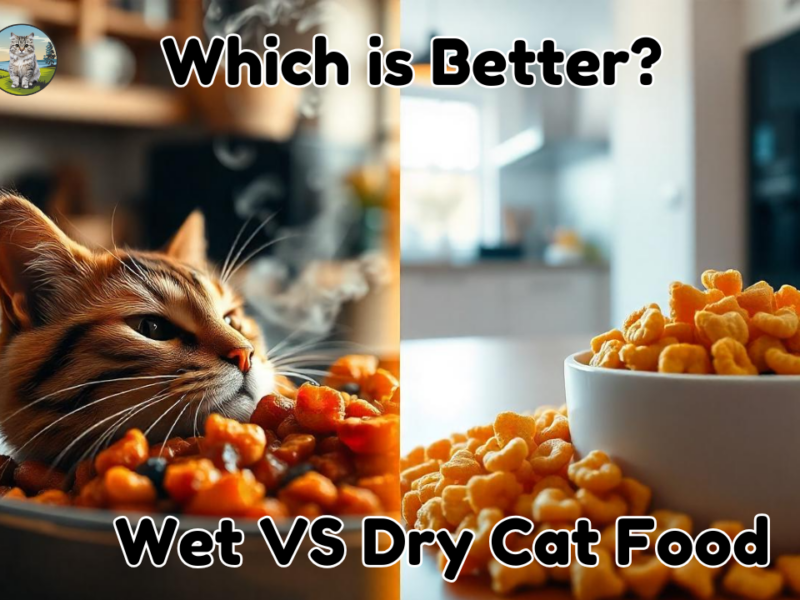Cats are curious creatures, and their interest in human food is no exception. Many cat owners have noticed their feline friends sniffing around their plates, especially when cheese is involved. But is cheese a safe treat for cats, or could it cause more harm than good?
Cheese is a staple in many households, often used in snacks, sandwiches, and even as a topping for various dishes. Since it is packed with protein and fat, it might seem like a tasty and beneficial snack for cats. However, before sharing cheese with your feline companion, it’s important to understand how it affects their digestive system and overall health. While some cats may tolerate small amounts, others can experience stomach issues or other health complications.
One of the biggest concerns with feeding cheese to cats is lactose intolerance. Most adult cats lack the enzyme needed to break down lactose, the natural sugar found in dairy products. This means that eating cheese can lead to digestive discomfort, including bloating, diarrhea, and stomach pain. In addition, some types of cheese contain high levels of salt and artificial additives unsuitable for cats.
While cheese is not toxic to cats, it should only be given as an occasional treat—if at all. There are much healthier alternatives that provide the same satisfaction without the risks. Understanding the pros and cons of feeding cheese to your cat can help you make informed decisions about their diet and overall well-being. In this article, we will explore whether cats can eat cheese, what types (if any) are safer, and what healthier alternatives are available.
Do Cats Like Cheese?
Many cats seem to be drawn to dairy products, including cheese. This attraction is often due to the high fat and protein content, which appeals to their natural carnivorous instincts. The strong aroma and creamy texture of cheese may also pique a cat’s curiosity.
However, just because a cat shows interest in cheese does not mean it is good for them. Unlike humans, cats do not have a natural craving for dairy. In fact, their digestive systems are not designed to process dairy products efficiently. Kittens can digest milk because their bodies produce lactase, but as they grow, this enzyme decreases, making it harder for them to digest dairy products like cheese.
Additionally, some cats may only be interested in cheese because they see their owners eating it. Cats are known to mimic human behaviors, especially when it comes to food. This curiosity, rather than a true desire for cheese, is why many cats try to sneak a bite from their owner’s plate.
Ultimately, while a cat may show interest in cheese, it does not mean it is a healthy or necessary part of their diet. Understanding why your cat is drawn to cheese can help you make better choices when offering treats.
Is Cheese Safe for Cats?
The safety of cheese for cats depends on several factors. While cheese is not toxic, it is not an ideal food for felines. Some cats may tolerate small amounts without any immediate issues, while others may experience digestive discomfort. Here are some important points to consider:
- Lactose Intolerance: Most adult cats lack the enzyme lactase, which is necessary to digest lactose. Eating cheese can cause bloating, diarrhea, and stomach upset.
- High-Fat Content: Cheese is high in fat, which can contribute to obesity and related health issues like diabetes and heart disease if fed regularly.
- Salt and Additives: Many cheeses contain high levels of salt and artificial additives, which can be harmful to a cat’s kidneys and overall health.
- Allergic Reactions: Some cats may be allergic to dairy products, leading to skin irritation, itching, or gastrointestinal distress.
- Hard vs. Soft Cheese: Hard cheeses like cheddar and parmesan contain less lactose than soft cheeses like brie and cream cheese, but they still aren’t the best choice for cats.
- Small Portions Only: If you decide to offer cheese, it should be in tiny amounts as an occasional treat, not a regular part of their diet.
- Healthier Alternatives: Instead of cheese, consider cat-friendly treats that are specifically formulated for their dietary needs.
Can Cats Digest Cheese?
One of the main concerns about feeding cheese to cats is lactose intolerance. Most adult cats lack the enzyme lactase, which is necessary to digest lactose, the sugar found in milk and dairy products. Without this enzyme, consuming cheese can lead to digestive issues. Here are some key points to understand:
- Lactose Sensitivity: Kittens have lactase to digest their mother’s milk, but this enzyme diminishes as they grow, making dairy hard to process.
- Digestive Discomfort: Consuming cheese may cause symptoms like bloating, gas, diarrhea, and stomach cramps.
- Severity Varies: Some cats may tolerate tiny amounts of cheese better than others, but most will experience some level of discomfort.
- Soft Cheeses vs. Hard Cheeses: Softer cheeses contain more lactose, making them riskier for lactose-intolerant cats.
- Hidden Dairy Products: Some pet foods and treats may contain cheese or dairy-based ingredients, so always check labels before feeding your cat.
- Hydration and Health Impact: Digestive issues caused by cheese can lead to dehydration, especially if diarrhea persists.
- Alternatives to Dairy: Instead of cheese, consider cat-friendly snacks like cooked meat or specially formulated cat treats.
Since cheese contains lactose, even a small amount may cause discomfort in lactose-intolerant cats. Some cats may tolerate cheese better than others, but it is generally not advisable to include dairy in their diet.
Types of Cheese: Which Are Safer for Cats?
While no cheese is truly safe or beneficial for cats, some types contain lower lactose levels and are less likely to cause digestive issues. Here’s a breakdown:
- Hard Cheeses (Cheddar, Parmesan, Swiss)
- Lower in lactose compared to soft cheeses.
- Still high in fat and salt, making them less than ideal for cats.
- Soft Cheeses (Brie, Mozzarella, Cream Cheese)
- Higher in lactose, increasing the risk of digestive upset.
- May contain mold or other bacteria that are unsafe for cats.
- Processed Cheeses (American Cheese, Cheese Spreads)
- Contain preservatives, artificial flavors, and excessive sodium.
- Not suitable for feline consumption.
- Lactose-Free Cheese
- A slightly better option but still not recommended due to its high fat and sodium content.
- Some varieties may contain artificial ingredients that could be harmful to cats.
Even the “safer” cheeses are not a necessary part of a cat’s diet. If given at all, they should only be offered as a rare treat in tiny amounts. Otherwise, it is best to stick to cat-friendly treats that support their nutritional needs.
Health Risks of Feeding Cheese to Cats
Feeding cheese to cats can lead to several health risks, including:
- Digestive Issues – Cats that are lactose intolerant can suffer from diarrhea, vomiting, bloating, and stomach pain after consuming cheese.
- Obesity – Cheese is high in fat and calories, which can contribute to weight gain and obesity in cats. An overweight cat is at a higher risk for diabetes and joint problems.
- Salt and Additives – Many cheeses contain high levels of sodium and artificial preservatives that can be harmful to cats, leading to dehydration and kidney issues over time.
- Pancreatitis – The high-fat content in cheese can trigger pancreatitis, a painful inflammation of the pancreas that requires veterinary care.
- Allergic Reactions – Some cats may have an allergic reaction to dairy, leading to itching, skin irritation, and gastrointestinal distress.
- Lactose Intolerance Symptoms – Even a small amount of cheese can cause symptoms such as gas, diarrhea, and lethargy in sensitive cats.
- Long-Term Health Complications – Regular cheese consumption can contribute to chronic health problems, including obesity, high blood pressure, and kidney disease.
Alternatives to Cheese for Cats
If you want to treat your cat, there are healthier options available that provide nutritional benefits without the risks associated with cheese. Some alternatives include:
- Cat Treats – Specially formulated treats designed for feline nutrition.
- Cooked Meat – Small portions of plain, cooked chicken, turkey, or fish.
- Pumpkin – A small amount of plain canned pumpkin can aid digestion.
- Eggs – Cooked eggs in moderation can be a protein-rich treat.
- Catnip or Cat Grass – Many cats enjoy these natural treats.
- Freeze-Dried Meat – A healthy, high-protein snack without additives.
Choosing species-appropriate treats ensures that your cat gets the right nutrients without any digestive discomfort or long-term health issues.
When Can Cats Eat Cheese?
While cheese isn’t the best treat for cats, some pet owners may still wish to offer it in small amounts on occasion. If you decide to feed your cat cheese, it’s important to do so with caution and moderation.
Can Cheese Be an Occasional Treat?
- A small piece of cheese given once in a while is unlikely to cause harm to most cats.
- It should never be a regular part of a cat’s diet, as it provides no essential nutrients for felines.
- Cheese can be used as a rare treat, such as to hide medication for a picky cat.
How Much Cheese Is Safe?
- A tiny portion, about the size of a pea or small cube, is generally safe for a cat that tolerates dairy.
- Hard cheeses like cheddar or Swiss are lower in lactose and may be easier on a cat’s stomach.
- Avoid giving cheese frequently, as the high fat and salt content can lead to health problems.
Signs to Watch for If a Cat Has a Bad Reaction
- Digestive upset – Diarrhea, vomiting, or bloating could indicate lactose intolerance.
- Lethargy or discomfort – If your cat appears sluggish or distressed after eating cheese, avoid giving it again.
- Increased thirst or urination – High salt content in cheese may cause dehydration and excessive drinking.
- Allergic reactions – Some cats may have an allergic response to dairy, leading to itching or swelling.
- Weight gain – Regular cheese consumption can contribute to obesity and related health issues.
Healthy Alternatives to Cheese for Cats
Instead of cheese, consider offering your cat these healthier, feline-friendly treats:
1. Cooked Meat
- Small pieces of plain chicken, turkey, or fish are excellent protein sources for cats.
- Avoid seasonings, sauces, or added salt, which can be harmful.
2. Cat Treats
- Commercially available cat treats are formulated to be both nutritious and safe.
- Look for treats with high protein and minimal fillers or artificial additives.
3. Pumpkin
- A small spoonful of plain canned pumpkin (without added sugar or spices) can support digestion.
- Pumpkin is a good source of fiber and can help with mild digestive issues.
4. Catnip or Cat Grass
- Many cats enjoy catnip or cat grass, which are safe and natural treats.
- Cat grass provides fiber, which can aid in digestion and prevent hairballs.
5. Eggs
- Scrambled or boiled eggs (without butter, oil, or seasoning) are a great protein-rich treat.
- Eggs should be given in small amounts and fully cooked to avoid salmonella risk.
6. Freeze-Dried Meat Treats
- These treats contain pure meat without additives and retain essential nutrients.
- Available in various options such as chicken, beef, or fish.
7. Blueberries or Melon
- Some cats enjoy small pieces of fresh fruit like blueberries or melon.
- Always introduce new foods in tiny amounts to ensure your cat tolerates them well.
By choosing healthier alternatives, cat owners can provide safe and nutritious treats without the risks associated with cheese. Always monitor your cat for any adverse reactions when introducing new foods.
Conclusion
Cheese might be a tempting treat for cats, but it isn’t an ideal choice for their diet. While some cats may tolerate small amounts, many struggle to digest dairy due to lactose intolerance. Additionally, cheese is high in fat and salt, which can contribute to health problems such as obesity, digestive issues, and kidney concerns.
Key Takeaways:
- Most adult cats are lactose intolerant, making cheese a potential cause of stomach upset.
- Certain types of cheese, such as hard cheeses, contain less lactose but still have high fat and sodium levels.
- Feeding cheese regularly can lead to weight gain and other health complications.
- Some cats may be allergic to dairy, causing symptoms like itching, swelling, or discomfort.
- Healthier alternatives, such as cooked meat, catnip, and freeze-dried treats, provide better nutritional benefits.
Final Verdict: Should You Give Your Cat Cheese?
While cheese is not toxic to cats, it is not an ideal treat due to lactose intolerance, high fat, and salt content. Some cats may tolerate small amounts, but there are better, healthier alternatives available. As a responsible pet owner, it’s best to avoid cheese and opt for cat-safe snacks instead. If you’re ever in doubt, consult your veterinarian before introducing new foods into your cat’s diet.


